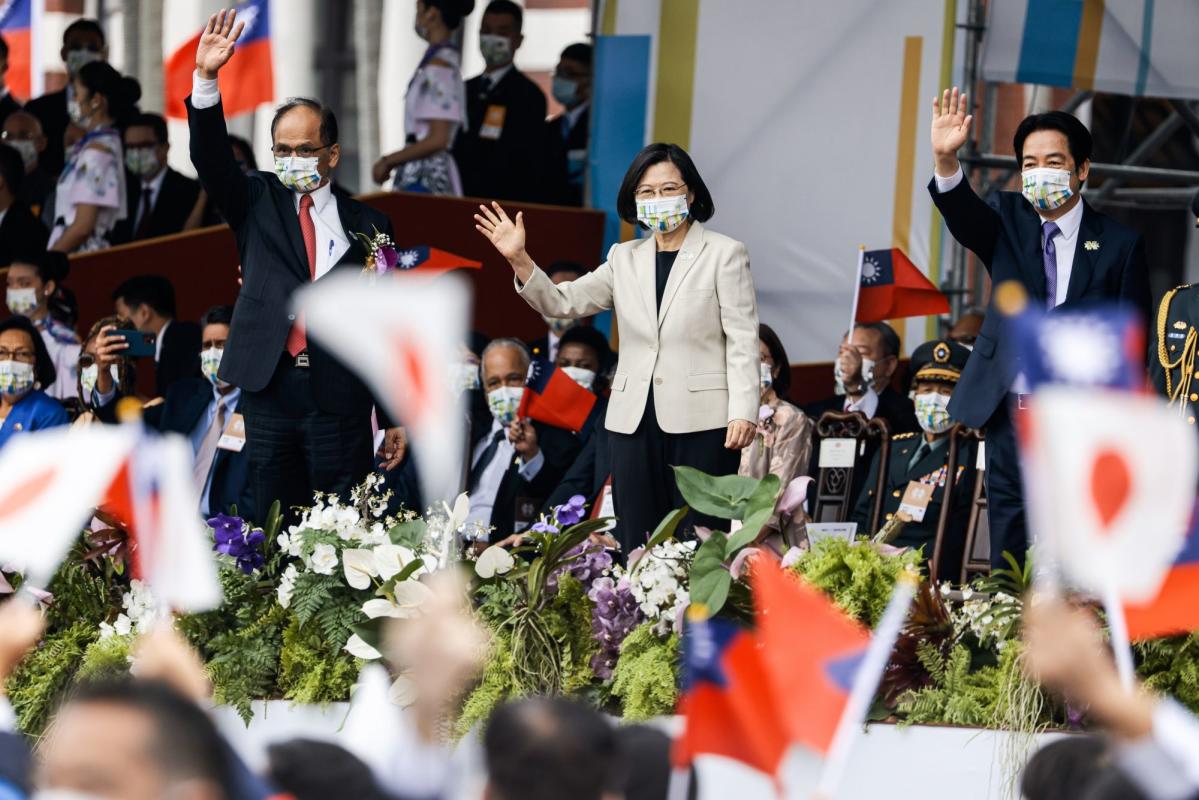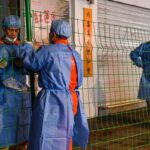
(Bloomberg) — Taiwan will not compromise on its sovereignty or democracy, President Tsai Ing-wen said, hours after China hailed a proposal that the self-ruled island adopt a Hong Kong-style governance model.
Most Read from Bloomberg
“The Beijing authorities should not make any misjudgment on account of Taiwan’s vigorous democratic system,” Tsai said Monday during her annual National Day speech. “They must not mistake there is room for compromise in the Taiwanese people’s commitment to democracy and freedom.”
Chinese diplomats over the weekend heaped praise on Elon Musk’s recommendation that Taiwan become a Hong Kong-style special administrative zone of China. Qin Gang, China’s ambassador to the US, thanked the Tesla Inc. chief executive officer on Twitter for re-upping the idea, saying the “one country, two systems” framework was a basic principle for “resolving the Taiwan question.” Shortly after, Foreign Ministry spokeswoman Mao Ning affirmed those remarks.
READ: Taiwan to Make Military Service Extension Announcement This Year
Such a proposal faces resistance in Taiwan, where there is growing hostility to any form of integration with Beijing, especially in the wake of the Chinese Communist Party’s sweeping crackdown on dissent in Hong Kong.
Tsai made clear to the island’s 24 million people that such a plan wasn’t acceptable. “We must defend our national sovereignty and our free and democratic way of life,” she said. “On this point, we have no room for compromise.”
Taiwan is expected to be a major issue at China’s twice-a-decade congress later this month, where President Xi Jinping is set to secure a precedent-breaking third term. The Chinese leader has previously pledged to use “all necessary means” to resolve the Taiwan issue.
While Tsai warned China an armed confrontation was “absolutely not an option,” she said Taiwan was bolstering its defenses in response to Beijing’s escalating military pressure. That meant ramping up production and procurement of weapons, such as precision missiles and high-performance naval vessels, she said, adding that Taiwan wouldn’t “leave anything to fate.”
She also spoke of the need to resume people-to-people exchanges, after the loosening of Covid-related border restrictions on both sides, to “ease tensions.” Tsai added that Taipei was willing to find a common solution with Beijing on cross-strait stability.
Tsai also vowed to strengthen Taiwan’s semiconductor supply chains, and downplayed concern among foreign governments of over-reliance on the island for cutting-edge chips.
“The concentration of the semiconductor sector in Taiwan is not a risk, but is the key to the reorganization of the global semiconductor industry,” Tsai said. She added that Taiwan would “help optimize” supply chains in a way that would give the island’s firms “an even more prominent global role.”
Taiwan has signaled it’s taking the war threat from Beijing more seriously since US House Speaker Nancy Pelosi’s August visit prompted unprecedented military drills around the island. China has sent warplanes and military vessels near Taiwan on an almost daily basis since that trip, which Beijing said violated its territorial claims over the self-governed democracy.
Last week, Taiwan pledged to treat any People’s Liberation Army incursion into the island’s airspace as a “first strike,” and said it would make an announcement on extending its four-month military conscription requirement by the end of the year.
Monday’s events, which mark the founding of the Republic of China, the formal name for Taiwan, include military and high-school marching band parades. Warplanes flew over the presidential office and advanced jet trainers performed an aerial display.
Tsai’s defiant speech comes as her Democratic Progressive Party prepares for local elections next month that are seen as a mid-term test ahead of a presidential vote in 2024. The DPP is seeking to defend key mayoral seats against the main opposition party, the Kuomintang.
(Updates with Tsai’s remarks.)
Most Read from Bloomberg Businessweek
©2022 Bloomberg L.P.




